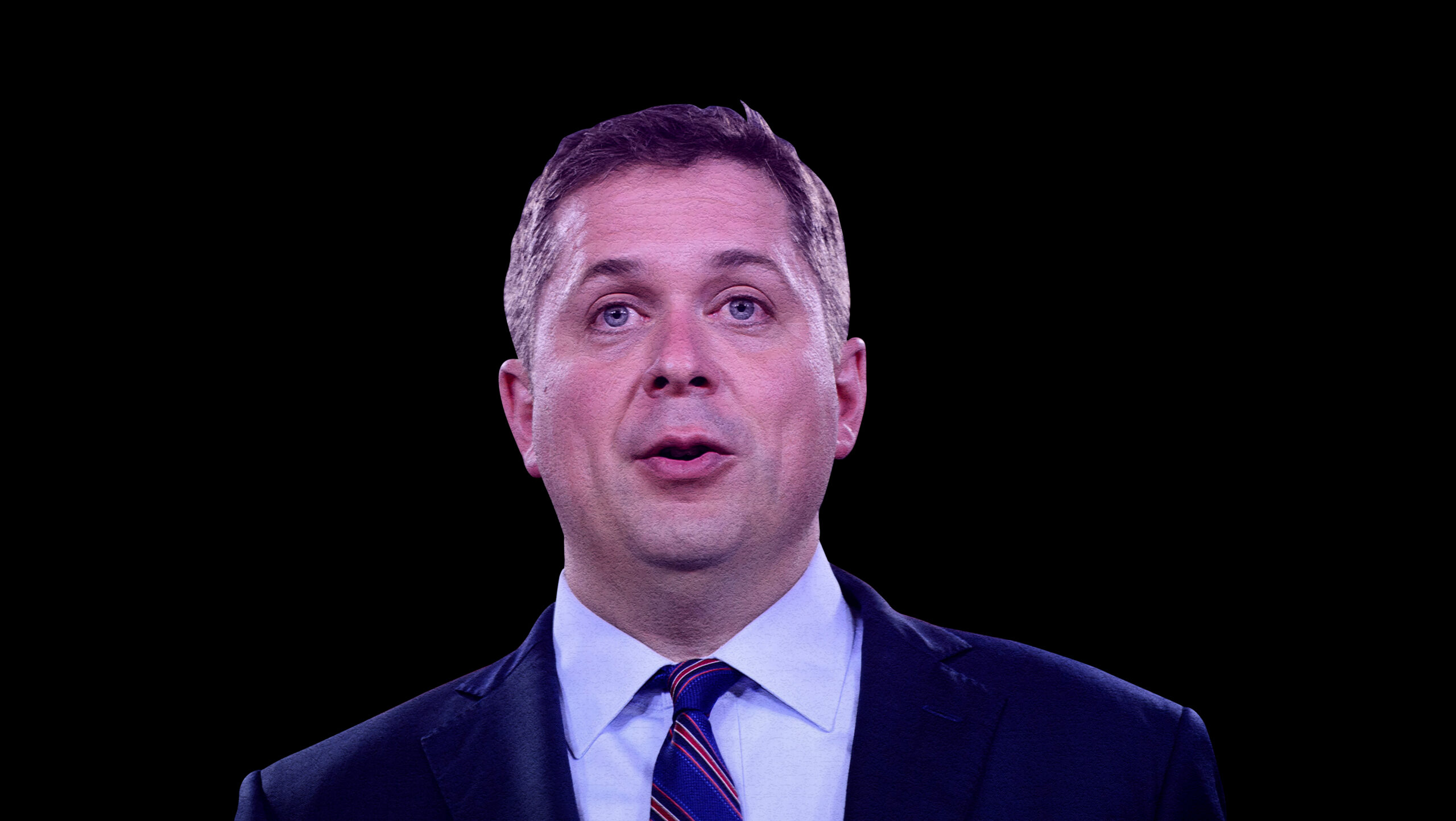This story is part of Rainbow Votes 2019, special Canadian election newsletter by Xtra. You can sign up here to receive the newsletter directly in your inbox, every Tuesday.
Andrew Scheer just can’t seem to get away from LGBTQ2 issues on the campaign trail. It’s been weeks since the Liberal Party surfaced a 2005 video of the Conservative leader expressing his opposition to same-sex marriage in a House of Commons speech — but, try as he might to dodge questions about his views on the subject, he keeps getting asked. For the first official weekend of the election campaign, Scheer spent much of his time doing something he likely didn’t anticipate: deflecting comments about homophobia, his party’s candidates and his past comments on queer rights.
The Liberal war room has been hard at work looking into the backgrounds of Conservative candidates, and each time problem candidates appear with the Conservative leader, Liberal politicians have been strategically sharing that information to the public. On Friday, when Conservative candidate Arpan Khanna was set to campaign with Scheer, Liberal MP Ruby Sahota tweeted a past Facebook comment in which Khanna used a homophobic slur. The same day, the Liberals pointed to Conservative candidate Ghada Melek, whose anti-gay and anti-trans comments barred her from running for the Ontario Conservatives in 2016. Scheer has attended events with Melek and spent much of his first week defending her.
Instead of turfing these candidates, like his rival parties, Scheer has instead said he will stand by them so long as they apologize for their past blunders. “As long as someone takes responsibility for what they’ve said, and addresses the fact that in 2019 some things that may have been said in the past are inappropriate today, that if anything that they’ve ever said in the past caused any type of hurt or disrespect to one community or another and have apologized for that, I accept that,” he said aboard his campaign plane on Saturday. But when asked if he would apologize for his own past remarks on same-sex marriage, Scheer would not give reporters a straight answer.
In these deflections, Scheer walks a fine line: to apologize and voice support for gay marriage might alienate many social conservative voters. But to stay mum on the issue can also alienate voters on the other end of the conservative spectrum, who are tired of the ongoing marriage debate (the party, after all, voted to change the definition of marriage on their books in 2016 to include same-sex couples). The Conservative Party, it seems, thinks staying silent is the best option.
But for LGBTQ2 Canadians, that silence is telling — especially during a campaign in which leaders of competing parties have openly and vocally supported queer and trans people. The wishy-washy non-answers say that our rights are only important when they determine voter support, that our communities aren’t worth considering politically.
So if Scheer apologizes, will it be enough? Can one “sorry” erase 14 years of deeply held anti-gay and -trans beliefs? And if Scheer’s personal and religious views have not changed, as he referenced as recently as 2016 in a Power and Politics interview with Rosemary Barton, would an apology even be sincere?
On the part of LGBTQ2 voters, an honest answer from the Conservative leader on where he stands on same-sex marriage — even if it’s one that we don’t want to hear — would be a best-case scenario. If Scheer doesn’t believe in our right to get married, queer Canadians deserve to know.
The latest polls
This is just a taste of what you’ll get from Rainbow Votes 2019, our special Canadian election newsletter. If you never want to miss the latest news on LGBTQ2 politics—and get exclusive content—subscribe to receive Rainbow Votes 2019 straight in your inbox.


 Why you can trust Xtra
Why you can trust Xtra


